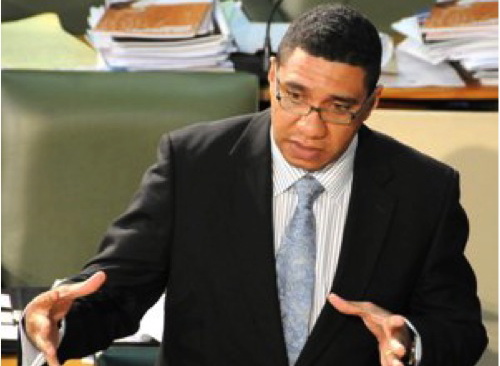By Marcia Forbes, PhD
US President Barack Obama became the virtual embodiment of successful use of social networks like YouTube, Twitter and the then-still-alive My Space by a politician. Today, every politician dreams of millions of Facebook friends and hundreds of thousands of Twitter followers, a committed base to proselytize on their behalf and, eventually, to vote for them.
In an October 2011 report, Facebook by the Numbers, Obama leads the pack with 23 million Facebook likes. Palin, no longer a presidential hopeful, it seems, pulls a mere three million. She’s paling in comparison to Obama but still has more likes than the entire population of Jamaica. No Jamaican politician can boast this level of social media engagement. People’s National Party (PNP) leader and Jamaica’s most popular politician, affectionately called, Sister P, boasts a comparatively paltry 11,494 likes but is substantially ahead of all others.
Jamaican politicians are taking to social networks (a subset of social media), but not in droves as I first believed before checking. Many, like lambs led by bright-eyed Generation Nexters, have no clue or interest in understanding how to use these technologies. They want votes, not a lesson in the dos and don’ts of social networking. However, being on Facebook and Twitter will not make you suddenly youthful or electable. It’s all about how you use these and other social networks. The word is ‘engagement’ — not the type that leads to real marriage, but to a virtual marriage of sorts. By communicating via these networks, citizens can get to better understand the policies and programmes espoused by politicians and political aspirants. But it requires work!
During the 2007 national elections, the Jamaica Labour Party (JLP) was held in awe for its forward-thinking and, what then seemed, quite novel use of social media. The numerous ads aired via old media (television and radio) were speedily hosted as YouTube videos on JLPTV. These provided entertainment for many and conversation for all as youths downloaded ads to their cell phones and shared with those without internet access or savvy. Twitter was a newly formed network and Facebook not the giant it now is. They didn’t factor in that campaign. The JLP’s website was a primary avenue for dissemination of information and the webmaster did a great job at tweaking and improving it.
Fast forward to 2011. A great deal has changed since 2007. Cell phones are even smarter now and seemingly ubiquitous, although, based on informed sources, they only represent about 10 per cent of the mobile phone market. Facebook is now all the rage, with almost 20 per cent of the local population reportedly having accounts. This is despite the low internet penetration level of just under 16 per cent. Based on research findings via my ‘youth online’ book project, Jamaicans use ingenious ways to get connected, including borrowing friends’ Facebook accounts. Figures for Twitter usage are more difficult to come by since “tweeps” are wont to identify their location as ‘Here, There, Everywhere’, ‘The Universe’ and other similar types of descriptions which make it nearly impossible to track where they are based.
It is disappointing that despite the growth in social networks and their proven ability to facilitate engagement, politicians are not appearing to cash in. Perhaps it is because, as I said before, it’s all work. Very few of the JLP and PNP members of parliament appear to have official Facebook accounts and not even a handful is on Twitter. PNP-related pages/groups appear to be well below 20 with even less for the JLP. Still, many may be incognito, not wanting to be bombarded by constituents and their demands/comments.
Communicating via social networks requires a thick skin, an open mind, a willingness to level the playing field in terms of hierarchical social status as well as a good working knowledge of the technology and its rules of engagement. Many politicians would rather avoid the demanding requirements and opt for others to engage on their behalf. This can be to their detriment, though, as they cede control to the button-pushing, still not fully trained ‘techies’ or social media ‘experts’ who respond to the Facebook prompts of ‘what’s on your mind?’ and the Twitter probes of, ‘what’s happening?’ with inane blasts of hard sell political advertising, alienating friends/followers in quick time.
As we enter the political ‘silly season’ of elections in Jamaica, my advice to politicians is to look, listen and learn before you jump into the rushing steam of social networks.
Dr Marcia Forbes is a media specialist and former Permanent Secretary in Jamaica’s Ministry of Mining and Telecommunications and later the Ministry of Energy and Mining. She is the author of Music, Media & Adolescent Sexuality in Jamaica.
Note: the opinions expressed in Caribbean Journal op-eds are those of the author and do not necessarily reflect the views of the Caribbean Journal.
Jamaica’s Holness Takes over as PM

